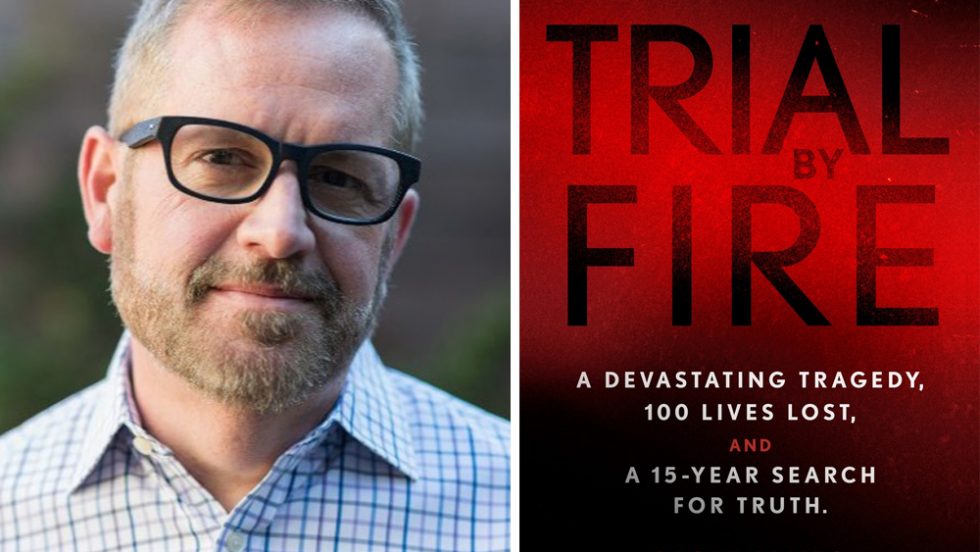
Many people today might not know of The Station nightclub in West Warwick, Rhode Island, and in 2021 not many more remember the glam metal band Great White. But the two are forever and inextricably linked by a fatal fire that happened nearly 20 years ago.
It was February 20, 2003, when a big pyrotechnic display in the small club led to a fire that left 100 concertgoers—about one-fourth of the audience—dead. Scott James ’84, a writer, reporter and author, wasn’t at the concert—he’d long since left the town on the outskirts of Providence where he grew up—but he remembers the club, and he came to realize there was a story there that hadn’t been told. And with the journalism skills he honed at Adelphi and his professional connections, he decided to find out what really happened that fateful, and fatal, night.
What he learned, and the voices of the people who lived through the tragedy, are the subject of Trial by Fire: A Devastating Tragedy, 100 Lives Lost, and a 15-Year Search for Truth (October 2020).
“There were many unanswered questions about this case,” James said. “The book reopens the case. What really happened, and you have to ask, what’s changed so it won’t happen again?
“And it has happened again,” he added, noting, for one, the 2016 Ghost Ship fire in Oakland, California, not far from James’ current home in San Francisco. “The inspection systems completely failed the people who were there.”
With plea bargains and settlements, the proverbial day in court for the victims’ families never came. With Trial by Fire, however, James hopes to set the record straight. Calling upon his contacts from his days as a Providence broadcast journalist, and the earlier training he got as a communications major and editor for The Delphian, James was able to put the story together.
“If you want to do creative work, you don’t want to be in a classroom that’s 500 people in a hall,” James said, recalling his Adelphi years. “I learned about the power of the press to create change and also to have some backbone.”
Reopening the investigation
For his new book, James interviewed people who were at the club that night, their family members and attorneys, and also secured the first interview granted by The Station’s owners. He scoured newspaper articles, grand jury testimony and other documents. In the end, he determined that the question of culpability was much more complex, and lay not just with the band but also with the city’s building inspectors and the owners as well.
Trial by Fire isn’t the first book to be written about The Station disaster, but it’s the first, James said, not written by an interested party.
“The books that have been done, some of them have been very heartfelt, they all tell the story from their own, very specific angle,” he said. “But that’s a specific angle, it’s not journalism. Journalism requires that we try to get all sides of the story, and that’s not what anyone had done.”
The importance of real journalism
Investigative journalism, according to James, may be a dying art.
“2020 has been a difficult year for journalism,” he said. “We have powerful people who are depicting journalists as the enemy of the people. Newspapers, news organizations are disappearing, and we haven’t figured out a path forward.
“There’s no replacement for someone who holds the powerful accountable, who gets them on the record,” he added. “Journalism’s goal is more important than ever. Perhaps it will be someone from the class of 2020 who figures out how journalism can be financially viable and move forward.”